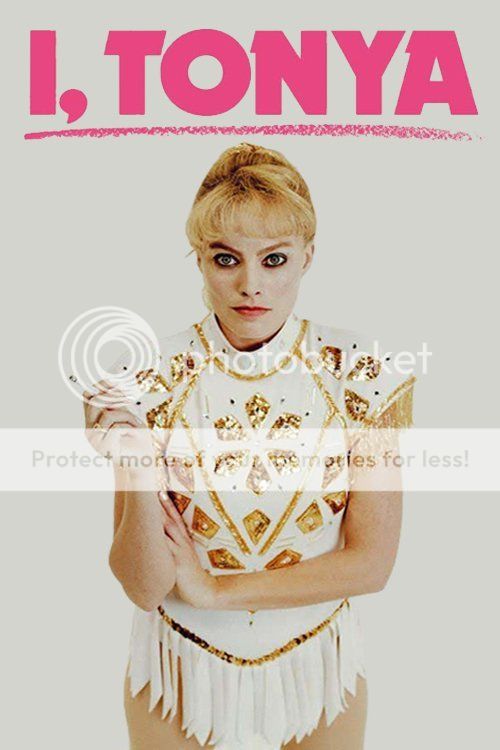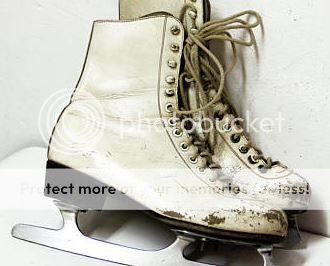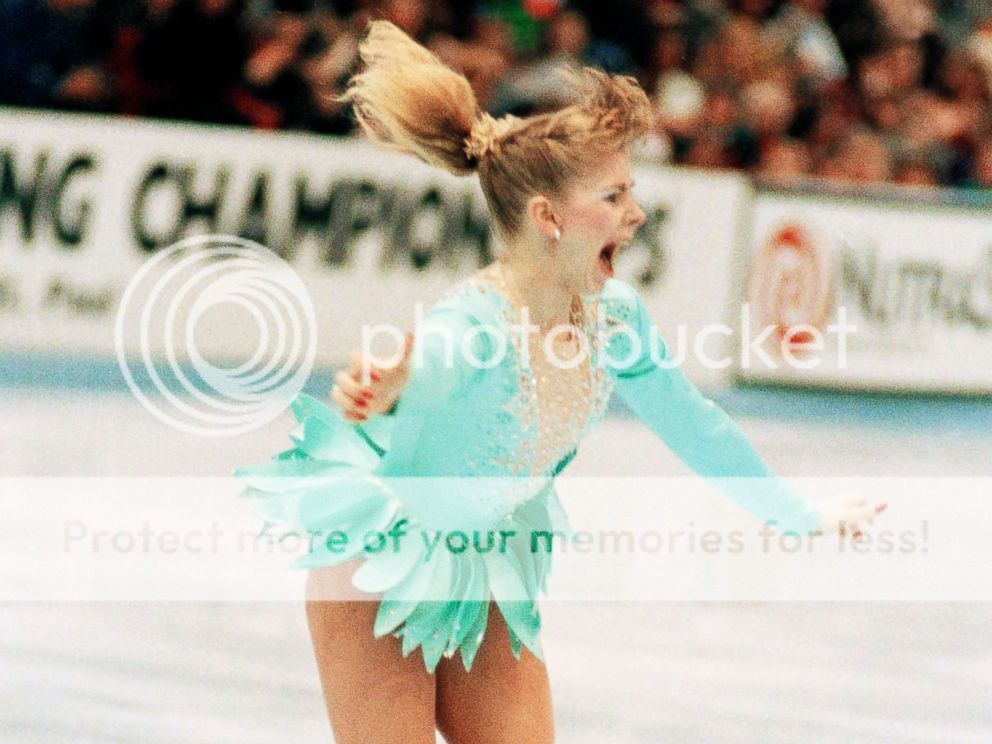Walk in My Shoes
Several women went out to dinner. After the waiter took our orders, there was a brief lull in the
conversation. Then one woman, new to the group, asked if we'd seen any of the Academy Award movies. "Only 3 Billboards." I replied. "There's one you should really see." she said in a delightful French accent. She filled in some blanks about it, including the fact that Allison Janney from West Wing was nominated for Best Supporting Actress in the film.
"What's the name of the movie?" I asked. "I,Tonya." she replied. "The ice skater who hit Nancy Kerrigan on the knee with a pipe at the Olympics? That Tonya?" Confirming it was Tonya Harding the conversation erupted into long held beliefs about Tonya Harding. There were many derogatory comments about Tonya's shortcomings; her sordid heritage; her lack of class; and her limited education. There was visible pain reflected on the face of the French woman when the comments degraded to calling Tonya, "white trash."
One of the women, noticing the French woman's expression and wondering if the use of the word had escaped translation, asked, "Do you know what white trash means?" The French woman said she had never heard the word until she came to America and the word upset her greatly. She said she could never understand how Americans use the term so freely without any regard for another person. "There's such hate and a lack of compassion when they say the words," she said.
Sometimes, a seemingly casual conversation can turn into a powerful reveal. The conversation stopped. Staring at each one of us, she asked if we knew any of the hardships Tonya had gone through to achieve skating success. A few sheepishly said the only thing they knew about Tonya was what they had seen on the news. "You really should see the film, it may change your mind." she told us. Her words, filled with sadness, had a great impact on all of us. We vowed to see the film, not knowing how greatly it would change the conversation.
From the age of three, Tonya was the victim of her mother's verbal and physical abuse. She was psychologically beaten down and told she was worthless. The only thing she could do well was ice skate. But her uniforms, hand-sewn and drab because the family had no money, brought her additional shame. When she married, her husband continued the physical beatings. She eventually dropped out of school to skate professionally but, because of her gritty background, never measured up to the more elegant and glamorous skaters. Her technical abilities, landing a perfect 6 in a Triple Axle at the US
Championships, were blemished by the Nancy Kerrigan incident. Though her husband was the mastermind, she was blamed and was banned from the sport she loved.
A French woman, visiting the US, called us on the carpet for judging another person without understanding their background. While we all had strong opinions of Tonya, none of us had walked in her shoes. The film forced us to do that. We saw what had transpired in this woman's life to make her behave the way she did. How would we have taken the abuse? Would we have fought back to become a great skater like her? It was a major wake-up call.
In this stridently polarized country we live in, judging another is a national pastime. We're all guilty of it. We do it easily and with great fanfare. We allow the news or social media to supply the opinions that we readily adopt as our own. And, we never seem to be concerned about how the judgments we own are levied on someone else. Why not? Perhaps it's because we've
all failed in the basic admonition, Do not judge another until you've walked a mile in their shoes! We left the film with a better understanding of Tonya. We rose to her defense. We vowed to be mindful of judging others. That's what happens when you Walk in My Shoes.
 |
"What's the name of the movie?" I asked. "I,Tonya." she replied. "The ice skater who hit Nancy Kerrigan on the knee with a pipe at the Olympics? That Tonya?" Confirming it was Tonya Harding the conversation erupted into long held beliefs about Tonya Harding. There were many derogatory comments about Tonya's shortcomings; her sordid heritage; her lack of class; and her limited education. There was visible pain reflected on the face of the French woman when the comments degraded to calling Tonya, "white trash."
One of the women, noticing the French woman's expression and wondering if the use of the word had escaped translation, asked, "Do you know what white trash means?" The French woman said she had never heard the word until she came to America and the word upset her greatly. She said she could never understand how Americans use the term so freely without any regard for another person. "There's such hate and a lack of compassion when they say the words," she said.
 |
Sometimes, a seemingly casual conversation can turn into a powerful reveal. The conversation stopped. Staring at each one of us, she asked if we knew any of the hardships Tonya had gone through to achieve skating success. A few sheepishly said the only thing they knew about Tonya was what they had seen on the news. "You really should see the film, it may change your mind." she told us. Her words, filled with sadness, had a great impact on all of us. We vowed to see the film, not knowing how greatly it would change the conversation.
From the age of three, Tonya was the victim of her mother's verbal and physical abuse. She was psychologically beaten down and told she was worthless. The only thing she could do well was ice skate. But her uniforms, hand-sewn and drab because the family had no money, brought her additional shame. When she married, her husband continued the physical beatings. She eventually dropped out of school to skate professionally but, because of her gritty background, never measured up to the more elegant and glamorous skaters. Her technical abilities, landing a perfect 6 in a Triple Axle at the US
 |
A French woman, visiting the US, called us on the carpet for judging another person without understanding their background. While we all had strong opinions of Tonya, none of us had walked in her shoes. The film forced us to do that. We saw what had transpired in this woman's life to make her behave the way she did. How would we have taken the abuse? Would we have fought back to become a great skater like her? It was a major wake-up call.
In this stridently polarized country we live in, judging another is a national pastime. We're all guilty of it. We do it easily and with great fanfare. We allow the news or social media to supply the opinions that we readily adopt as our own. And, we never seem to be concerned about how the judgments we own are levied on someone else. Why not? Perhaps it's because we've
 |
Post-Script: Mirai Nagasu landed a Triple Axel in the 2018 Korean Winter Olympics. The media went wild about the "historic accomplishment" for a woman to do three-and-a-half revolutions in the air and land on one foot. There was nary a mention that twenty-seven years ago (in 1991) Tonya Harding was the FIRST woman to do a Triple Axel in competition. Nary a mention! We remembered and We Walked in Your Shoes, Tonya!
Jo Mooy - April 2018

No comments:
Post a Comment